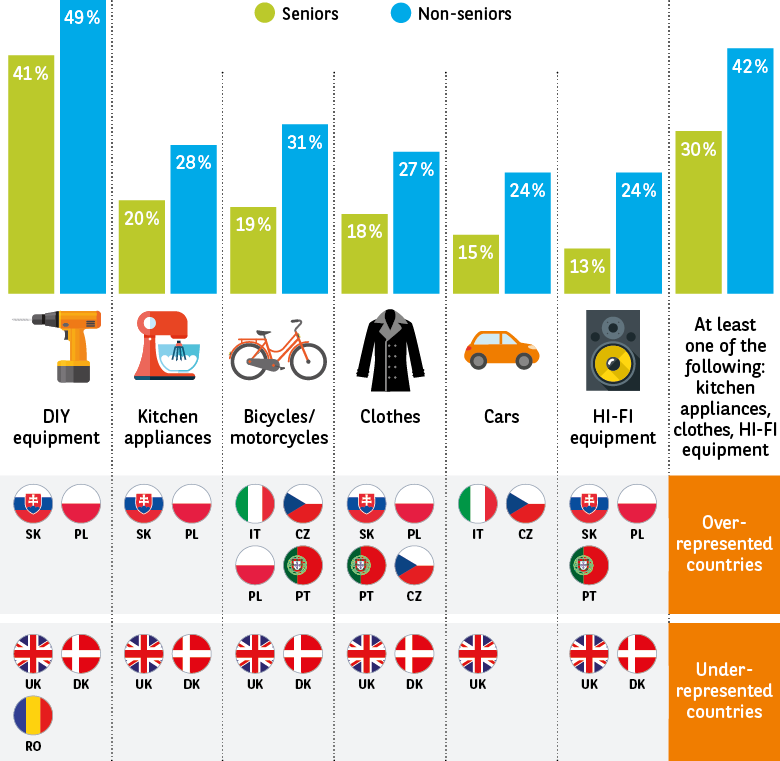THE INSTINCT OF OWNERSHIP


Ownership for the sake of simplicity.
Possession appears to be sacred for over 50s. Only 9 % of seniors hire equipment (DIY equipment, kitchen appliances, etc.) and 18 % occasionally borrow it (vs. 21 % and 33 % of under 50s, respectively). Far from being consumerists, they are more concerned with convenience and being able to use their car and kitchen appliances without constraint. Two-thirds of seniors own their home. As their children leave the nest, more space becomes available to store the equipment they need.
When questioned about whether they would be prepared to give up ownership of certain products and instead share them with others (Fig. 33), seniors seem less enthusiastic than in the case of services. Less than 20 % of them say they are ready to offer others the use of their car, bicycle or kitchen appliances. That’s 10 points less than their juniors, on average. Unsurprisingly, British seniors are the most attached to their property. Indeed, just 8 % would be prepared to share their car. Safety and the upkeep of items and vehicles may be a factor, while the financial advantages, which tend to lure younger generations, are less of an enticement to seniors.
Fig. 33 In the future, would you be prepared to give up ownership of the following products and instead share them with others? Yes, very probably
Source: L’Observatoire Cetelem de la Consommation 2016.
DIY is the exception
When it comes to sharing, DIY equipment stands apart. While two-thirds of seniors engage in DIY at least once a month, 41 % would be prepared to lend their equipment on an occasional or regular basis. This proportion is even higher among those who state that they regularly do DIY, with the exception of the Danes, who lead the way when it comes to home improvement but are not keen on sharing equipment. Perceived as less personal than cars or kitchen appliances, the lending of DIY equipment also gives seniors the chance to share advice and know-how, while also meeting local people. Their motivations are therefore more than just financial.
Missed opportunities
Ever concerned about the quality and durability of the products they acquire, seniors are reluctant to purchase second-hand goods. 28 % do so occasionally or regularly, compared with 46 % of under 50s. Seniors in the Czech Republic, Denmark and Portugal are the happiest to take advantage of the second-hand market. Their stage in life must surely have some effect. Indeed, as they accumulate possessions with age, people are more likely to be sellers than buyers!

